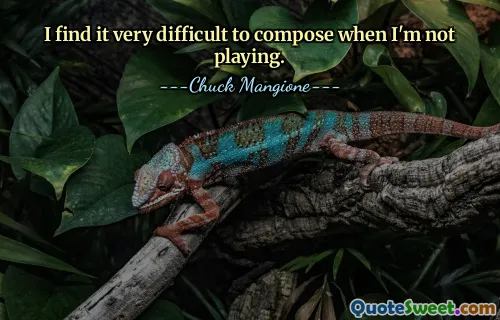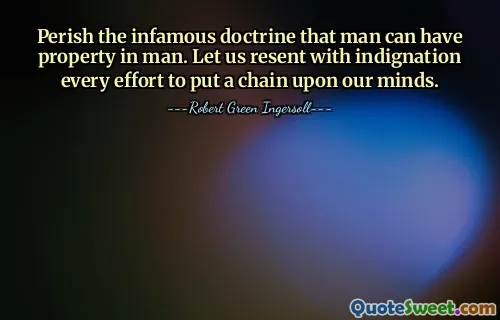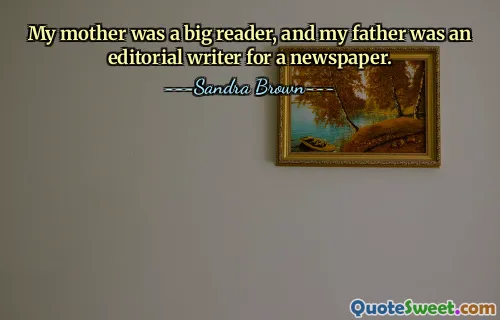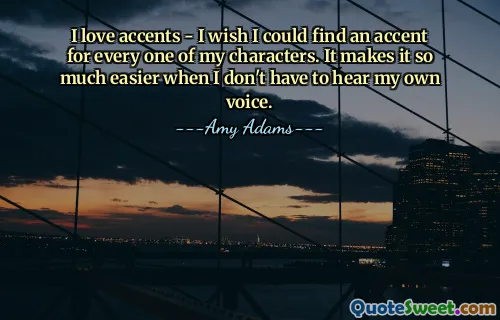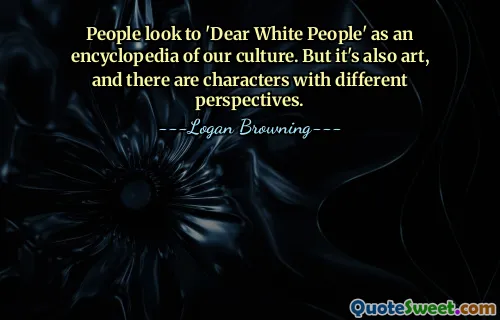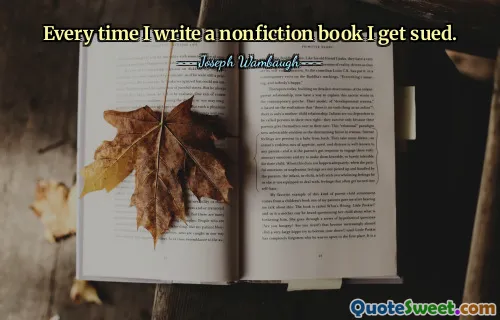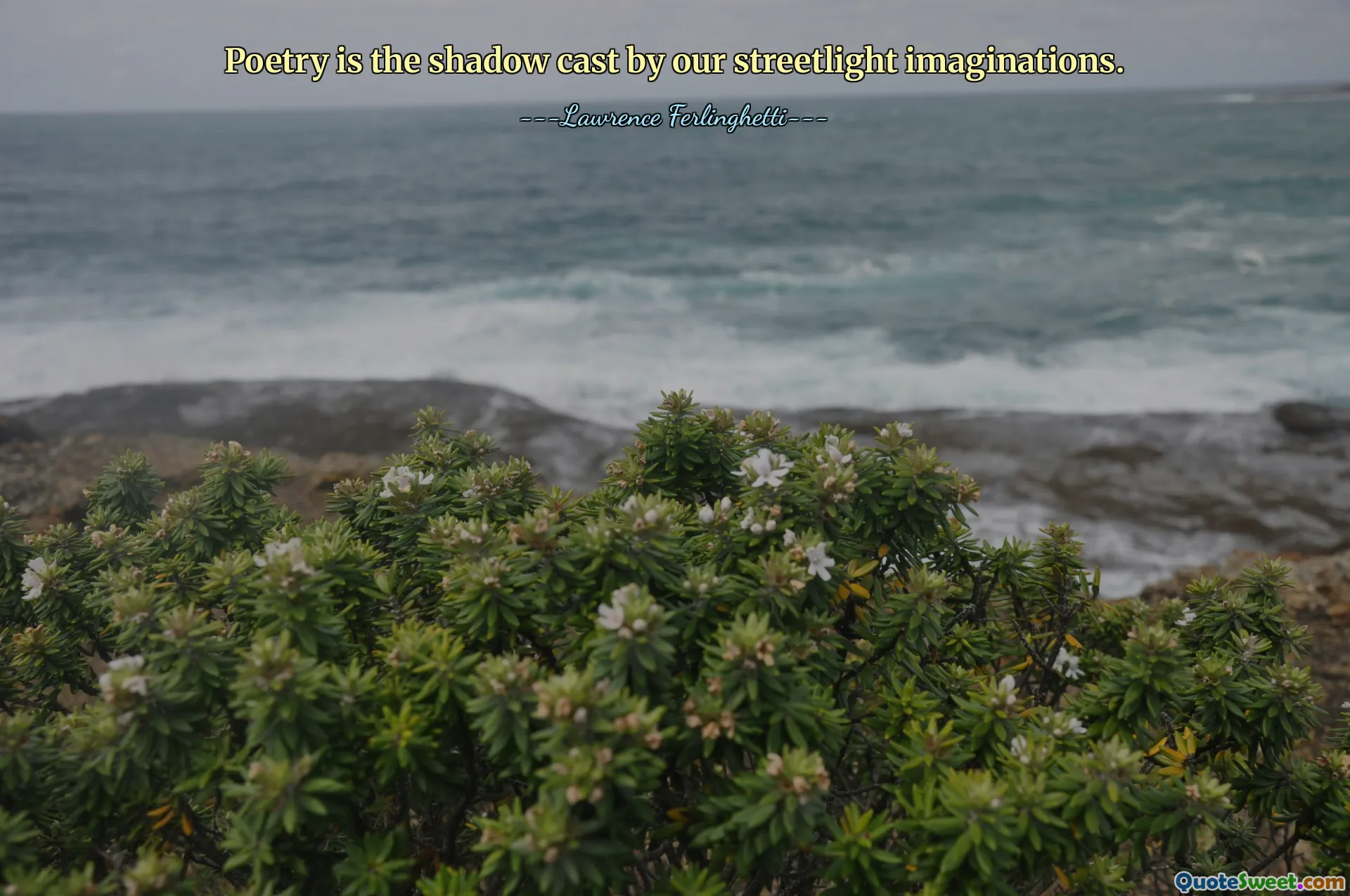
Poetry is the shadow cast by our streetlight imaginations.
This evocative metaphor by Lawrence Ferlinghetti suggests that poetry serves as a shadow or reflection of our creative and imaginative minds, much like the shadow cast by a streetlight depends on the shape and movement of what it illuminates. The phrase captures the idea that poetry is not an isolated art form but a direct consequence of human imagination — an external manifestation of our inner worlds. Shadows often represent something elusive or intangible, paralleling how poetry can evoke emotions and ideas that are not immediately tangible but resonate deeply within us. It implies that our imaginations are like streetlights, illuminating parts of our consciousness while leaving other aspects shrouded in darkness; poetry helps bring those hidden corners into view, revealing truths in subtle or symbolic ways. Moreover, this metaphor underscores the relationship between reality and perception: just as shadows depend on the interplay of light and object, our understanding of the world is shaped by the light of our imaginations. It highlights poetry’s role in transforming abstract impressions into concrete art, acting as a bridge from the internal to the external. The idea also invites reflection on the nature of creativity itself — as something that relies on the interplay of perception and subconscious—the 'shadow' being a testament to the presence of something else, perhaps mysterious or unconscious, that our imaginations bring to life. Overall, the quote beautifully emphasizes the relationship between human creativity and the way we interpret and express our inner visions, suggesting that poetry is both a reflection and a consequence of the richness of our imaginative landscapes.


